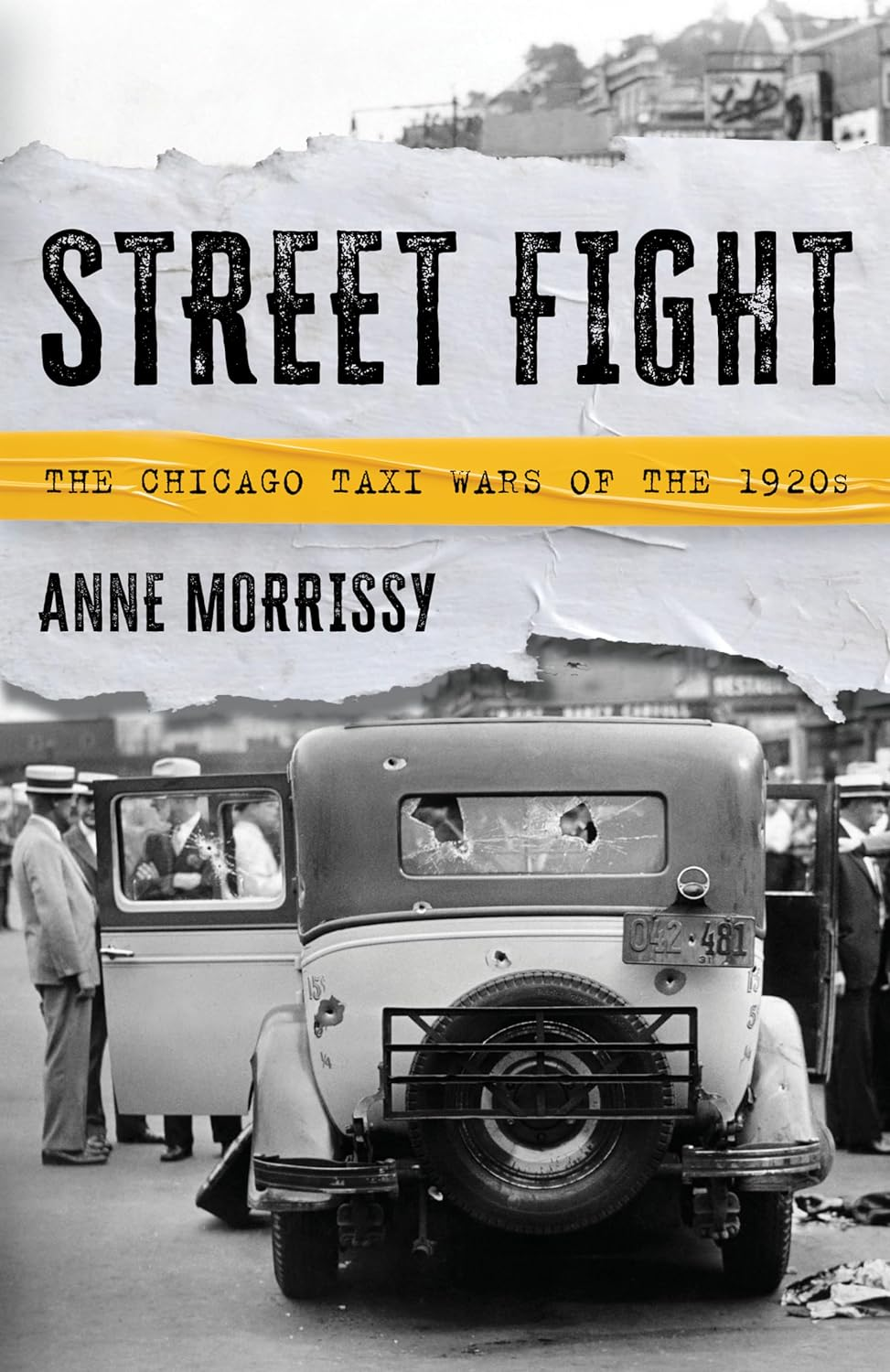In many ways this feels like a uniquely Chicago conflict, as it occurs at the center of the overlapping issues of the rise of unions and their violent suppression, government corruption, racial tensions, and organized crime of the Prohibition era. Can you talk more about the ways these various conflicts shaped the wars?
You’re absolutely right — while other cities experienced some taxi-related street violence during this era as well, there were many external factors in Chicago that made our Taxi Wars so hyperbolic and long-lasting. When I first started writing this story, I assumed that the union was genuinely looking out for the welfare of its members. But what I learned is that, during this period, organized crime was deeply enmeshed with the union leadership and would often use paid muscle to bully, assault, overpower and intimidate the union drivers into doing its bidding. This was a big source of the tensions and battles surrounding the civil war at Checker Taxi, which led to some of the most violent incidents in the book.
Then there were the ongoing accusations of political corruption—part of Yellow Cab’s meteoric success can be credited to Walden Shaw and John Hertz and their ability to navigate the complex local politics of the 1910s and 1920s, emerging as civic leaders in the public transportation sphere under both Mayors Dever and William Hale “Big Bill” Thompson. This led to frequent accusations that they exerted undue influence over the city and used their power to benefit their own company at the expense of their competitors, though I am not sure that these accusations were always entirely fair.
The racial tensions in the city at the time were impossible to avoid (I write about the 1919 “Race Riot” and the concurrent public transportation strike in the book), but I was surprised to learn that the two biggest taxi companies, Yellow Cab and Checker Taxi, embraced racially egalitarian policies that were years ahead of their time. The leaders of both companies were Jewish immigrants to America, and possibly because of this, they actively worked to promote fair hiring practices in their companies. Checker Taxi is credited as the first cab company to hire Black drivers, for example. As early as 1919, Yellow Cab was reminding its drivers in the Taxigram, “Any driver found guilty of incivility on account of a man’s color or race will be in serious trouble; this applies particularly to 27th and State, and 35th and State,” or Yellow Cab’s taxi stands in the city’s Black Belt.
